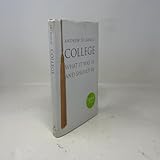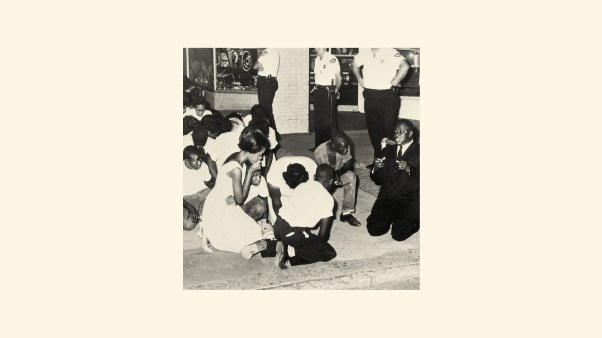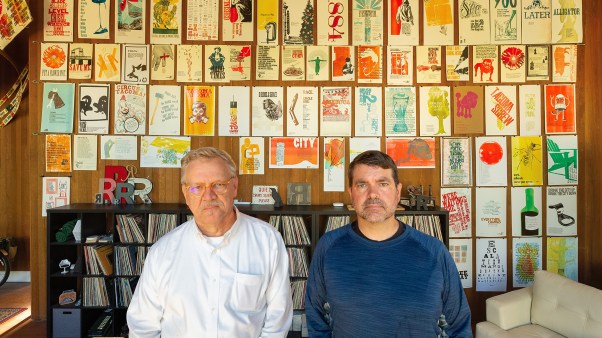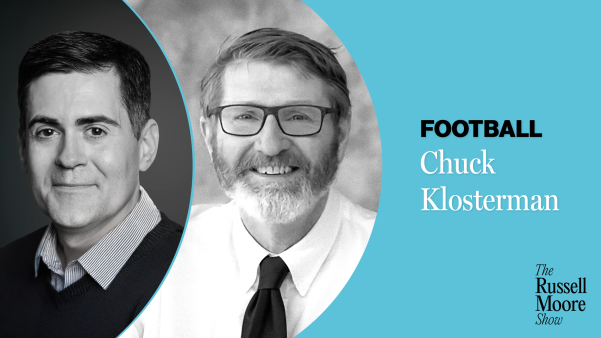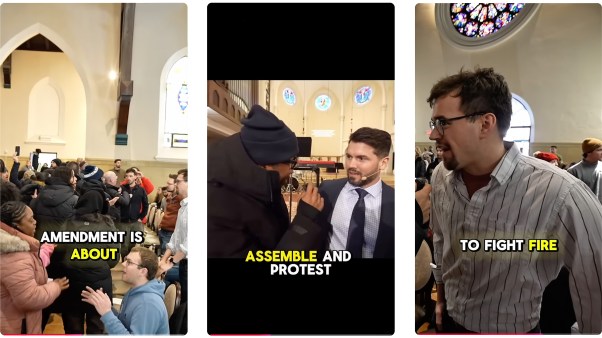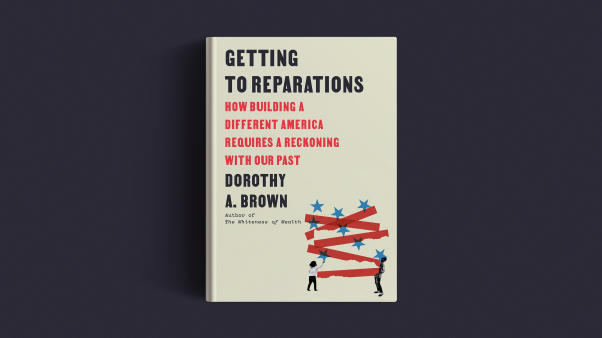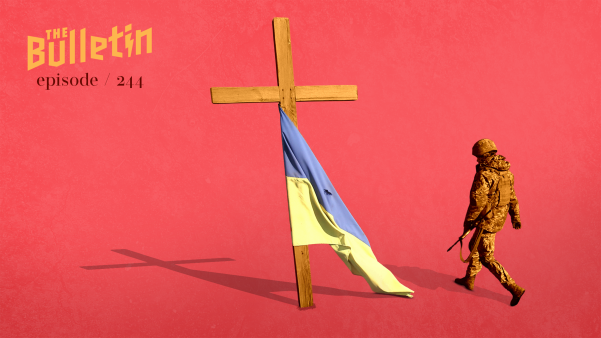Life has its moments when God seems to tickle our nostalgic funny bones with his feather of irony. After dining in the Domus Sanctae Marthea in Vatican City, David Lyle Jeffrey and I found ourselves in a deep discussion with Robert Moynihan about Walker Percy. The tickling began. I had just finished Andrew Delbanco’s College: What It Was, Is and Should Be, and found one of his theses playing out before me; authors have transformative influences on students’ lives.
Jeffrey, a Distinguished Professor at Baylor, had just spoken for our Green Scholars’ lecture series at the Augustinianum, co-hosted by the Pontifical Biblical Institute. Moynihan, the editor-in-chief of Inside the Vatican, was in attendance since this event was attached to our Verbum Domini exhibit at the Braccio Carlos di Magno. Perhaps the largest scrims ever displayed in the Plaza di St. Pedro were those we draped above our exhibit’s entrance adjacent to the basilica steps. But even after a very full day, Moynihan’s veneration of Percy still proved riveting.
Moynihan saw an affinity between Percy and Baylor University via insightful work by Ralph Wood and Nathan Carson, and began summarizing Percy’s essay “The Delta Factor,” the first in his collection The Message in the Bottle. I’d received this book as a gift some time ago, but never got into that essay. Happily, Percy’s brilliance wasn’t lost on Moynihan and Jeffrey. Thirty minutes later, still standing, Moynihan continued his account of Percy’s differentiation between signs and symbols. He ended with a re-enactment of Helen Keller’s discovery of language, yet another Percy prompt. Moynihan would have made Carl Elliott and John Lantos proud—editors of the companion reader for Percy’s complex discussions of language.[1]
Jeffrey and I later reflected on Moynihan’s unbridled excitement about Percy, and how one person’s articulate thoughts had changed the course of another’s life.[2] David reminded me that it was such eureka moments through great literature that introduced the world to him, the 20th-century Canadian equivalent of a rough Scottish ploughboy. Also, that none of his rich life experiences are what he deserved, but rather a gift from a gracious Creator.
David reminded me of my similar journey out of the woods of Buck Creek, Indiana, homeless by graduation at age sixteen. He noted that we were but two of a legion who discovered the world through engaging the Great Dialogue—a route ardently championed by the likes of Robert Maynard Hutchins, and now Delbanco:
A college should not be a haven from worldly contention, but a place where young people fight out among and within themselves contending ideas of the meaningful life, and where they discover that self-interest need not be at odds with concern for one another.
The tension is that such discoveries are often made while studying what have been recently dubbed the “useless” subjects, like literature and the arts. Delbanco asks why we continue to foster the flight to the “marketable” subjects instead of insisting on the interdependence of all learning: “In the last few decades we have seen the rise of compensatory institutions within the institutions, such as the Center for Human Values at Princeton, or the Institute for Ethics at Duke. But what does it mean that thinking about ethics has become an extracurricular activity?”
Delbanco’s diachronic analysis of American education keeps an eye on the profitable exchange of ideas, and the ideal places of “guided self-discovery for young people in search of themselves.” Percy would say these happen through the richness of language, through discovering that our catastrophic existence finds hope only in Christ and his story: we need to learn to find the right messages among the flotsam and jetsam of information that turns up on our lives’ shores.
Let’s tease out this overlap between the two authors a bit more. In his essay “The Loss of the Creature” (also included in The Message in the Bottle), Percy champions eurekas of learning, challenging educators to recognize the limitations of compartmentalized knowledge. Dissecting a specimen of Squalus acanthias is well and good—but it’s no substitute for discovering in the wild an adventurously complex dogfish. Professors should acknowlegde, as much as possible, “the whole ensemble of relations” existing between their students and their subjects—most important, their desire to study. And lest my theology is misunderstood, that feather of irony is a prompt to recognizing Providence.
Delbanco recognizes this same intrinsic motivation as a target solution for revitalizing the academy. Upon reading this refreshing book, one of dozens of recent texts on the ills of the academy, I wanted to stand on my airplane seat and rake my plastic cup across the luggage bins in jubilation. With the exception of dissing the University of Phoenix via citing an unfortunate statement by a past president, Delbanco refrains from cynicism.[3]
Rather, he sees an educational system in which genuine community is increasingly undervalued. With the decline of the residential campus and the influx of utilitarian assignments, valuable experiences of cognitive give-and-take (exemplified by that spur-of-the moment conversation with Moynihan and Jeffrey) are no longer a priority. As Delbanco insists, we need the “mind and mind” relationship between students and teachers, whether in the precepts (discussion groups) like those utilized at Princeton for lectures, or in intentional digital chat rooms or assignments, like those utilized by Harvard physics professor Eric Mazur.
Delbanco provides no panacea, but he does offer practical suggestions and hybrid solutions. Perhaps the biggest fault that plagues the swath of books on higher education’s ills is the ardent defense of broad humanistic education (as in Anthony Kronman’s Life’s Ultimate Questions) without any helpful proposals for financing such ideals. To his credit, Delbanco at least acknowledges the financial hurdles—but reminds us of an even bigger problem. He cites Christopher Jencks here: “Making college a lot more affordable is a challenge governments know how to meet, while making students learn a lot more is a challenge we do not currently know how to meet. Under those circumstances, starting with affordability is probably the best bet.” Some scholars, such as economist Ronald Ehrenberg, argue that federal institutional funds should be prorated by the number of Pell grant recipients who graduate.
If you visit my office, you’ll find Delbanco’s words quoted above—about what college should be—taped to my door, along with the last line of his book, which completes that same paragraph: “We owe it to posterity to preserve and protect this institution. Democracy depends on it.” I wonder what Percy would have said in response. I think I’ll call Moynihan; I’m in a system that still supports and fosters such engagement—which remains as important for faculty as for students. Books & Culture itself is one such community of learning.
Jerry Pattengale directs the Green Scholars Initiative. He is assistant provost at Indiana Wesleyan University and Distinguished Research Scholar at Baylor University. His most recent book is Buck Creek: True Stories to Tickle Your Mind (Dust Jacket Press), a selection from his newspaper column.
1. The Last Physician: Walker Percy and the Moral Life of Medicine, ed. Carl Elliott and John Lantos (Duke Univ. Press, 1999).
2. Moynihan wrote his dissertation on Percy and had the joy of handing it to him, and then receiving his positive response the next day.
3. “I’m happy that there are places in the world where people sit down and think. We need that. But that’s very expensive. And not everybody can do that. So for the vast majority of folks who don’t get that privilege, then I think it’s a business” (p. 174, quoting the past “director” of the University of Phoenix).
Copyright © 2013 by the author or Christianity Today/Books & Culture magazine.Click here for reprint information on Books & Culture.


